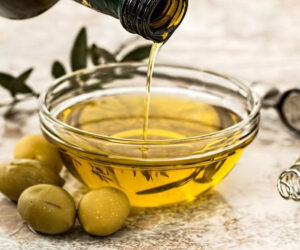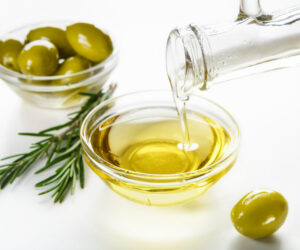Broccoli and broccoli sprouts are shining stars in the cruciferous vegetable family, and there are some very compelling reasons that this amazing vegetable actually has been scientifically proven to prevent and kill cancer cells, reduce tumors, and prevent their spread. Broccoli contains some very powerful bioactive phytochemicals (naturally occurring compounds) that fight cancer, arthritis, hypertension, heart disease, kidney disease, diabetes and more. Broccoli has been shown in scientific studies to:
⦁ Protect cells from DNA damage
⦁ Detox the body
⦁ Kill cancer cells
⦁ Antiviral, antifungal and antibacterial action
⦁ Powerful anti-inflammatory
⦁ Inhibit cancer cell growth and spread
These actions are carried out through broccoli’s copious amounts of fiber, sulforaphane, glucoraphanin, phenolic compounds, Diindolylmethane (DIM), beta carotene, lutein, zeaxanthin, vitamins C, E, and K, folate, and minerals. Cruciferous vegetables contain health-promoting/disease-fighting substances known as glucosinolates, which are naturally-occuring sulfur-containing chemicals. These potent chemicals also explain why cruciferous vegetables have a uniquely pungent aroma and slightly bitter flavor.
Sulforaphane stands out as one most powerful cancer-fighting ingredients in broccoli by supporting proper DNA replication and function of your cells, helping them to reproduce healthy cells. (Cell mutations are often the beginnings of cancer.) Sulforaphane also encourages cell death in colon, bladder, prostate, breast, lung, brain, thyroid, tongue, and skin cancers; as well as oral, pharynx, esophageal, colon and kidney cancers. Sulforaphane is effective against most all cancers. In fact, just three servings a week of broccoli, cabbage, brussels sprouts, or other cruciferous vegetables can reduce overall cancer risk by over 60%.
Sulforaphane also helps to reduce (by as much as 73%) dangerous free radicals which can also wreak havoc on various body systems and cells, which protects DNA and healthy cell replication. Sulforaphane—unlike toxic chemotherapy—can actually induce cancer cell death, without harming healthy cells. In fact, it strengthens healthy cell reproduction. Sulforaphane also enhances the ability of certain anti-cancer and chemotherapy medications such as cisplatin, gemcitabine, doxorubicin, 5-flourouracil, while limiting their toxic effects on normal, healthy cells. Sulforaphane also contains powerful anti-inflammatory compounds which not only fight cancer, but diabetes, heart disease, Alzheimer’s, arthritis, allergies, and more.
Glucoraphanin is a type of glucosinolate, contained in all cruciferous vegetables. Glucosinolates are considered to be a part of the defense mechanism of the broccoli plant and also becomes a defense mechanism in our bodies, when we consume it. Glucoraphanin, in particular, is a glucosinolate precursor to sulforaphane that helps to block cancer cells from forming or multiplying. What’s more, broccoli sprouts contain up to twenty times more of this bioactive compound, and are a delicious addition to any salad, sandwich or smoothie.
Phenolic Compounds in broccoli stops damage from free radicals, and reduces inflammation–two things that are very difficult to avoid in our environment. These out-of-control free radicals along with inflammation, are the beginnings of many serious disease processes, including cancer, heart disease, type 2 diabetes, asthma, Alzheimer’s and more. Phenolic compounds are also very effective against bacterial, viral, and fungal infections.
Diindolymethane or DIM for short, has multiple benefits in our bodies, including boosting the immune system, making it more effective at killing cancer cells, and helping to fight cancers—especially those that have to do with our sex hormones, such as prostate, breast and ovarian cancers. DIM is a metabolite of indole 3 carbinol. DIM helps to prevent excess estrogen from converting into another more dangerous form of estrogen, which is causative factor in breast cancer. Incidences of breast cancer, and other estrogen-related cancers are generally quite low in many Asian cultures that embrace diets high in cruciferous vegetables.
In a 2008 study published in Pharmaceutical Research, scientists found that low doses of DIM induced a protein that helps to kill cancer cells, and reduce new cancer cell growth in prostate cancer. In another study reported in the April 22, 2008 edition of Pharmaceutical Research, scientists found low doses of DIM induced production of a protein in prostate cancer cells which weakens and kills cancer cells and stops their spread.
For some, broccoli and other cruciferous vegetables may taste bitter and not be very well-liked. However, an excellent—and even more potent—alternative to broccoli, is broccoli sprouts. Three-day-old broccoli sprouts can contain up to 50 times the amount of cancer-preventing compounds as mature broccoli. Broccoli sprouts can easily be grown at home and enjoyed raw. Their mild taste makes them easily compatible on a variety of foods, including salads, sandwiches, smoothies and sprinkled as a garnish on eggs, soup, etc. Another delicious and more concentrated choice is ‘broccolini’, which is basically baby broccoli. It also has a more mild taste, and tender-crisp texture, making it perfect for light steaming (no more than 5 minutes), which boosts the sulforaphane content, and other phytochemicals in the broccoli.
One other method for maximizing the cancer-fighting potential in broccoli is to combine it with mustard seed, daikon radish, wasabi, arugula or cabbage—especially the red/purple type. The American Institute for Cancer Research reports that:
“participants [who] ate a broccoli supplement…and ate a second food with myrosinase, their blood and urine levels of sulforaphane were significantly higher than those who did not eat the food.”
Broccoli’s super healthy benefits extend far behind its cancer prevention, providing more than one reason to eat this (or its cruciferous relatives) most every day. Besides being a powerful cancer fighter, broccoli:
⦁ Fights Non Alcoholic Fatty Liver Disease and liver cancer by lowering triglyceride levels.
⦁ Improves digestion, adds fiber for a ⦁ healthy gut, provides optimal nutrients for a healthy microbiome.
⦁ Detoxifies the body
⦁ Reduces inflammation
⦁ Carotenoids support
⦁ Flavonoids fight allergies
⦁ Protects skin from sun damage
⦁ Reduces and maintains healthy blood sugar levels, preventing diabetes
⦁ Supports heart health, maintaining healthy arterial walls
So yes, your mom was right when she told you to “Eat your broccoli!” Enjoy it often and protect your health! And don’t be afraid to slather on some grass-fed butter or cheese onto your broccoli too… the healthy fats in butter (or even grass-fed cheese) can help improve the absorption of many of the powerful nutrients in broccoli! Plus, it tastes WAY better with butter than just plain steamed broccoli!



